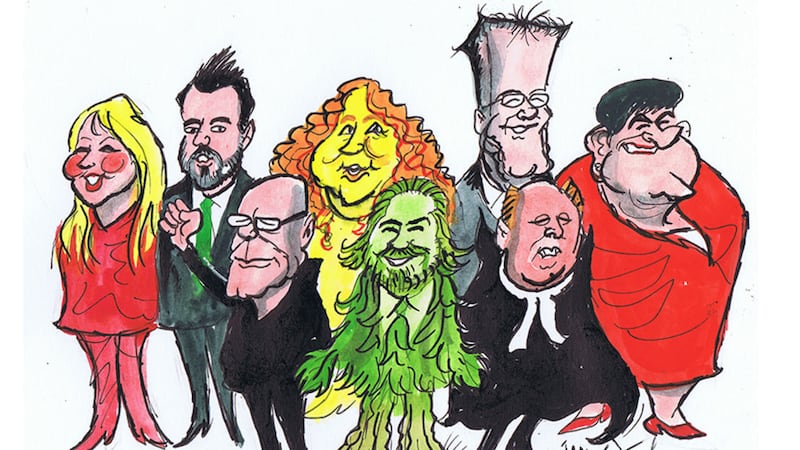This time next week we’ll know whether the electorate has opted for the same-old, same-old, or actually managed to surprise most of us cynical, banging-our-heads-against-the-wall pundits and voted for the ‘change’ they keep tweeting and facebooking about.
Some commentators dismiss the impact of social media (tweeting a message of support isn’t the same as walking to a polling station and casting a vote), yet when I interviewed Nigel Farage two weeks before the Euro referendum he said; “the avalanche of support for us on social media, particularly Twitter, suggests that this is going to be much closer than Cameron thinks. We might even win by a whisker.”
I’m seeing a lot of support for ‘change’ on social media, but it doesn’t come close to being an avalanche. And nor am I detecting much evidence of an army of first time or former voters being prepared to vote for it on March 2. Yes, I could be entirely wrong, or not looking in the right places, but all of my gut instincts (which tend to keep me in the ballpark when I make calls during elections) suggest that not much will change.
Which means that it will be the DUP and Sinn Féin taking the lead in the talks process leading to the formation of a new executive. Mike Nesbitt has said that the UUP will not return to the executive as a junior partner—which suggests they won’t be in the process. Alliance has made it clear they will talk and have left the door open to returning to the justice department. I’m not quite sure what the SDLP position is at this point.
It strikes me that yet another attempt to cobble together a ‘nothing is agreed until everything is agreed’ deal will, as most of the others have done, collapse or implode at some stage. So why not try something a little bit different?
First, reach agreement on a programme for government that focuses on the big departmental issues (health, education, infrastructure) and which the new executive team take collective responsibility for and pledge to implement during the next mandate. In other words, abandon the silo mentality and, instead, work together and budget together.
Health is not an Orange/Green issue. Cancer is no respecter of political opinion or religious belief. Roads don’t discriminate. Intellect and curiosity are not restricted to just one section of the community. So there is nothing to stop the DUP and Sinn Féin from agreeing on policies that are equally good for everyone in Northern Ireland.
Instead of attacking fellow ministers for non-delivery (which they’ve been doing for the past three months), how about working with each other and pushing the same policies through? And maybe, just maybe, they’ll discover that genuine cooperation will allow them to build coherent, collective policies and then bank a few successes further down the line.
Alongside that, establish a consultative group of academics/specialists (a reboot, albeit on a smaller scale, of the Civic Forum) to look at the ‘big ticket’ issues like culture, parades, the past, legacy, paramilitarism, flags etc. Give them a couple of years to see if they can produce an overarching strategy (most of these issues are inter-linked anyway) which can then be presented to the executive and passed down to the assembly and public for lengthy, considered debate.
Maybe this is pie-in-the-sky stuff; but having watched successive executives get bogged down in disputes and serial crises of one sort or another, it seems reasonable to suggest that we try separating the everyday business of government from the issues which tend to prove toxic in terms of inter-party relationships. Also, if the parties are given the space to get on with building consensus on that day-to-day stuff and manage to make progress, then they may find that public confidence in the institutions begins to grow. And with that confidence and progress as a background, they may find it easier to make progress—even if it is very tentative to start with—on the really difficult issues.
The parties still have huge baggage. They still tend to appoint people to consultative bodies on the basis of, ‘these three are acceptable to unionists and these three are acceptable to nationalists.’ That’s a bad way of approaching problems, because many of those appointees also have their own baggage. So, instead, gather together a group of people who are capable of thinking on their own and equally capable of spotting where compromise and progress is possible. If you deliberately create us-and-them consultation groups then you’ll get us-and-them fudge.
These are just modest suggestions; and they have flaws, I accept. But I also know that if the parties return to sticking plasters and cosmetic overhauls then, as sure as eggs are eggs, we’ll end up with another crisis, another dispute and another massive sapping of public confidence. Proving they can work together is the best sort of ‘change.’
It is, in fact, the ‘change’ that everybody wants.








